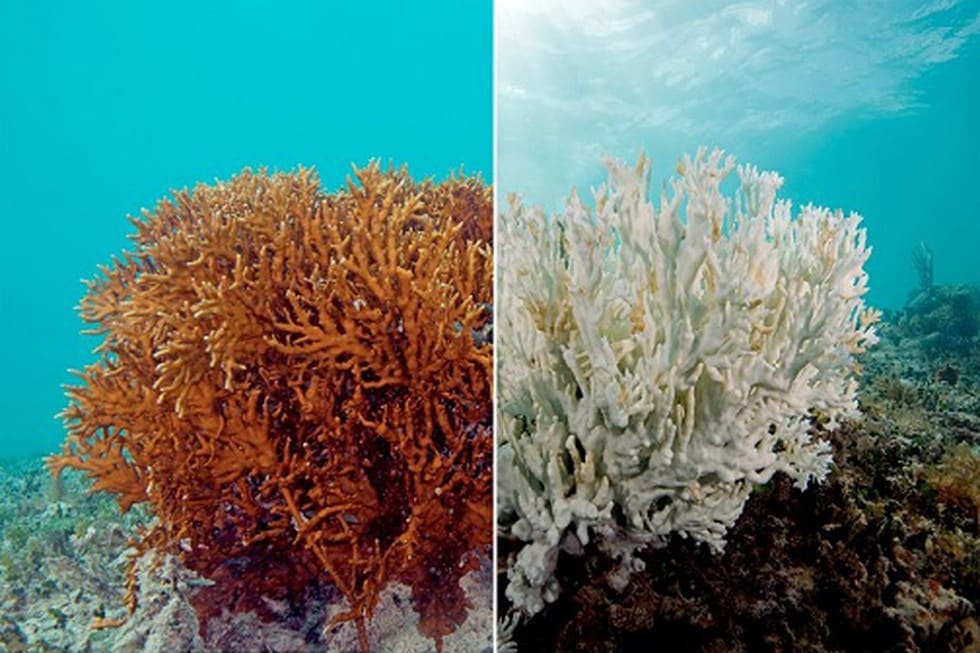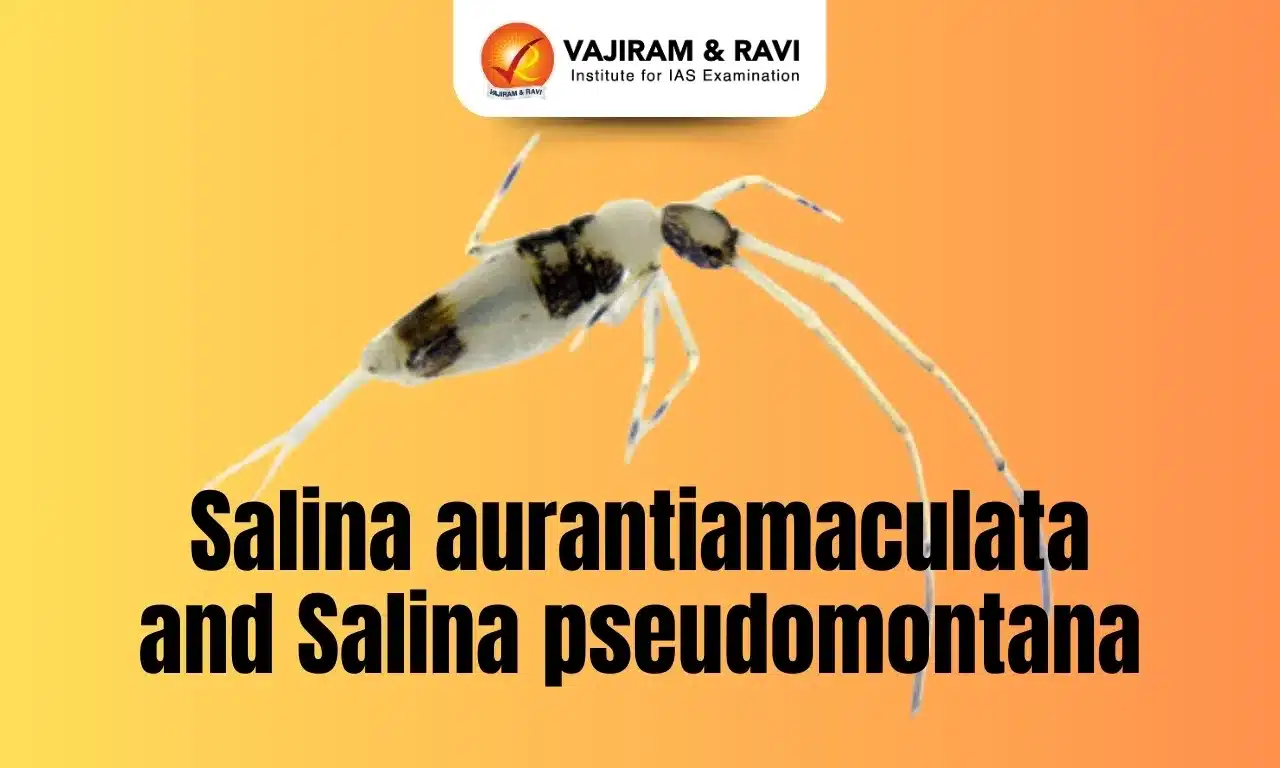What are Coral reefs?
- Corals are marine invertebrates or animals not possessing a spine.
- Each coral is called a polyp and thousands of such polyps live together to form a colony, which grows when polyps multiply to make copies of themselves.
- Corals share a symbiotic relationship with single-celled algae called zooxanthellae.
- The algae provides the coral with food and nutrients, which they make through photosynthesis, using the sun’s light.
- In turn, the corals give the algae a home and key nutrients. The zooxanthellae also give corals their bright colour.
- Australia’s Great Barrier Reef is the world’s largest reef system stretching across 2,300 km.
- It hosts 400 different types of coral, gives shelter to 1,500 species of fish and 4,000 types of mollusc.
Coral Bleaching:
- Coral Bleaching happens when corals experience stress in their environment due to changes in temperature, pollution or high levels of ocean acidity.
- Under stressed conditions, the zooxanthellae or food-producing algae living inside coral polyps start producing reactive oxygen species, which are not beneficial to the corals.
- So, the corals expel the colour-giving zooxanthellae from their polyps, which exposes their pale white exoskeleton, giving the corals a bleached appearance.
- This also ends the symbiotic relationship that helps the corals to survive and grow.
What Causes Coral Bleaching?
- Change in Ocean Temperature: Increased Ocean temperature caused by climate change is the leading cause of coral bleaching.
- Runoff and Pollution: Storm generated precipitation can rapidly dilute ocean water and runoff can carry pollutants, which can bleach near shore corals.
- Overexposure to sunlight: When temperatures are high, high solar irradiance contributes to bleaching in shallow water corals.
- Extremely low tides: Exposure to the air during extremely low tides can cause bleaching in shallow corals.
Q1) What are the effects of coral bleaching?
Bleached corals are likely to have reduced growth rates, decreased reproductive capacity, increased susceptibility to diseases and elevated mortality rates. Changes in coral community composition can occur when more susceptible species are killed by bleaching events.
Source: Scientists freeze Great Barrier Reef coral in world-first trial
Last updated on August, 2025
→ UPSC Mains Question Paper 2025 is out for Essay, GS 1 & GS 2.
→ UPSC Mains GS 3 Question Paper 2025 is now out.
→ UPSC Mains GS 4 Question Paper 2025 is now out.
→ UPSC Mains 2025 will be conducted on 22nd August 2025.
→ UPSC Notification 2025 was released on 22nd January 2025.
→ UPSC Calendar 2026 is released on 15th May, 2025.
→ UPSC Prelims Question Paper 2025 and Unofficial Prelims Answer Key 2025 are available now.
→ UPSC Prelims Result 2025 is out now for the CSE held on 25 May 2025.
→ The UPSC Vacancy 2025 were released 1129, out of which 979 were for UPSC CSE and remaining 150 are for UPSC IFoS.
→ UPSC Prelims 2026 will be conducted on 24th May, 2026 & UPSC Mains 2026 will be conducted on 21st August 2026.
→ The UPSC Selection Process is of 3 stages-Prelims, Mains and Interview.
→ UPSC Result 2024 is released with latest UPSC Marksheet 2024. Check Now!
→ UPSC Toppers List 2024 is released now. Shakti Dubey is UPSC AIR 1 2024 Topper.
→ Also check Best IAS Coaching in Delhi














